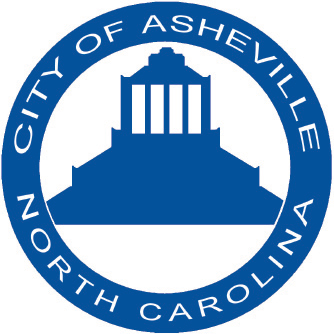As the saying goes, if you can’t stand the heat, get out of the kitchen. But it’s in kitchens — specifically, in how kitchens should be defined by the city’s homestay ordinance — that Asheville City Council members face a potentially fiery subject during their meeting of Tuesday, May 11.
According to a staff report released before the meeting, Council members will consider a zoning amendment that would allow homestays to include a kitchen. Currently defined as any space that includes a stove, full-size refrigerator or sink, kitchens are not currently permitted; Council passed the ban in 2018 in an effort to prevent long-term housing from being converted into short-term rentals.
The kitchen language soon became a sore spot among the city’s homestay operators, who characterized the restrictions as both unnecessary and unrealistic. Speaking with Xpress in March, Jackson Tierney, co-founder of the Asheville Homestay Network, said the rules had also created a perverse incentive for people to destroy existing kitchens when seeking to use their properties as homestays. Some new construction, he added, is also being built without kitchens for the express purpose of short-term rental.
The new recommendation would revise the definition of kitchen to allow large appliances, thereby creating greater flexibility for property owners. Shannon Tuch, the city’s principal planner, told Council’s Planning and Economic Development committee in March that short-term units could be converted to long-term housing depending on the market, citing travel restrictions from the early days of the COVID-19 pandemic. (Since July 2020, Buncombe County’s year-to-date short-term rental revenues are up over 43%.)
Council members will also consider whether to prohibit the use of detached accessory structures for homestays and require that non-resident property owners be listed as co-hosts on homestay applications. The latter move is designed to prevent outside investors from operating multiple homestays simultaneously.
The PED committee, consisting of Council members Sandra Kilgore, Gwen Wisler and Sage Turner, discussed the potential updates at its March and April meetings. Those members did not provide a clear recommendation on the kitchen rule but agreed to support the other two homestay changes.
In other news
Council members will also hear a presentation on new proposed water rates, stormwater fees, parking garage pricing and other costs. According to a staff report, fees and charges comprise 35% of total city revenue and 10% of general fund revenue. Asheville waived some fees and late charges in response to the economic fallout of the COVID-19 pandemic, and no fee increases were implemented in fiscal year 2021.
The proposed water rate realignment will include a 6% price increase for all users except wholesale customers. New base fee costs will also be determined by meter size, with larger meters paying more. City staff estimates that the fee increases will generate roughly $3.5 million in revenue; the increase comes after Asheville agreed not to charge users a monthly capital fee in a June legal settlement.
Consent agenda and public comment
The consent agenda for the meeting contains four items, which will be approved as a package unless singled out for separate discussion. Highlights include the following resolutions:
- A resolution authorizing a contract of roughly $1.05 million with AstroTurf Corporation for the Memorial Stadium Turf and Drainage Replacement Project. The project will start in the summer and replace the stadium’s existing playing surface, field drainage and stormwater system; work is estimated to take six to eight months.
- A $6,000 budget amendment to fund an architectural survey of the Burton Street neighborhood. The survey will be funded by a $4,000 donation from the Burton Street Neighborhood Community Leadership Association and $2,000 from the city’s Planning and Urban Design Department.
- A resolution authorizing a more than $1.76 million contract with Hendersonville-based Tarheel Paving and Asphalt for the resurfacing of 16 city streets totaling 4.45 miles. The scope of work also includes repairs to concrete sidewalks on four streets for compliance with the Americans with Disabilities Act.
Prior to the regular meeting, Council will hold a 2:30 p.m. work session to discuss the city’s fiscal year 2021-22 operating budget. The meeting will be livestreamed at this link; no public comment will be accepted.
The full meeting agenda and supporting documents can be found at this link. Due to COVID-19, Council will meet remotely, and the meeting will be livestreamed through Asheville’s public engagement hub.
Members of the public who wish to speak during the meeting must sign up in advance at this link or call 828-259-5900 no later than 9 a.m. May 11. City staff will use the list of registered speakers to manage the speaker queue during the meeting.
Prerecorded voicemail messages can also be left at 855-925-2801, meeting code 2776; written comments can be sent to AshevilleCityCouncilApril272021@PublicInput.com. Emails will be accepted for 24 hours after each public hearing.




Before you comment
The comments section is here to provide a platform for civil dialogue on the issues we face together as a local community. Xpress is committed to offering this platform for all voices, but when the tone of the discussion gets nasty or strays off topic, we believe many people choose not to participate. Xpress editors are determined to moderate comments to ensure a constructive interchange is maintained. All comments judged not to be in keeping with the spirit of civil discourse will be removed and repeat violators will be banned. See here for our terms of service. Thank you for being part of this effort to promote respectful discussion.